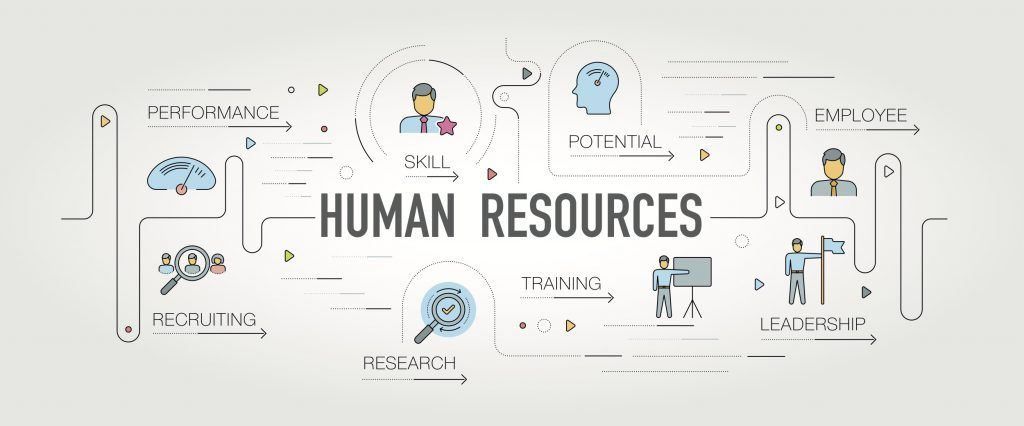The undisputed nadir of LinkedIn nonsense, Oleg Vishnepolsky, once said that HR doesn’t stand for ‘Human Resources’. It stands for ‘Happy Relationships’.
It doesn’t, though. It stands for Human Resources.
But maybe he has a point?
I’ve been in recruitment 18 years. I’ve been exposed to every type of HR imaginable. I’ve seen, first hand, the crucial role they play in business.
Human resources has become the backbone of businesses.
That means you need to know about it. Understand how HR can help you.
Here are 8 useful insights that’ll help you make sense of the intricacies, and get the most out of HR heroes.
If you’re already in HR – great. Prepare to have your ego stroked.
1) HR Heals Hiring Headaches
“The favourite part of my day is reading through hundreds of CVs”, said no one ever.
HR folk are hiring experts. Writing job descriptions, using applicant tracking systems, holding interviews – they know all the methods to maximise the hiring process and minimise costs. This is one the most time-consuming tasks there is. The average time to hire a new employee is 27 days, and the best candidates are off the market within 10 (Undercover Recruiter).
62% of small business owners have made a wrong hire (Monster).
Avoid costly mistakes by streamlining your HR hiring process.
2) They Turn Coal into Diamonds
Once your new employees are onboard, HR can train them to meet your business’ demands. They run inductions that clearly outline their responsibilities, instill the core values of your company, and offer a career progression programs.
Businesses tend to undermine the importance of investing in their employees’ training, which is a big mistake. For one thing, it lessens the likelihood of your employees leaving.
40% of employees with poor training leave their jobs within the first year (Gurthie Jensen).
It also increases productivity.
74% of 4,300 workers felt they weren’t achieving their full potential due to a lack of development opportunities (Shift Learning).
Plus, it helps grow and future-proof your business. Studies show that companies offering extensive training earn a 218% higher income per employee.
3) They’re Peacekeepers
You know Jerry is taking your lunch.
You saw the remains of your home-made lasagne in his bin.
Even though you clearly labelled it with your name.
To top it off, Stacey keeps trying to push her workload onto you.
Conflicts arise in almost any business. That’s just people. Personality and workstyle clashes, heavy workloads, stress. This leads to higher rates of sickness and absence, and a negative work environment.
60-80% of difficulties stem from strained relationships (Kreisman, Barbara J.).
Most managers are untrained in conflict management and dispute resolution. Not like HR, who are trained to identify these issues before they escalate, and act as neutral mediators to resolve them.
4) Carrot Distribution
It’s 7am.
Unlike the other poor souls, you will not be suffering the sweaty cramped train – because you will be driving your company car.
You stroll into the office kitchen where free breakfast is laid out, and in the evenings this is replaced with free beer.
Nice to feel appreciated, right?
If your competitor is offering better benefits, your star employees may have their heads turned. They might even leave. Why do you think everyone wants to work at Google or Amazon? Most business leaders believe in the impact of an attractive remuneration package, yet only 25% have a strategy in place. Poor benefits mean high attrition, meaning further costs to hire and train replacements.
The average cost of replacing an employee is £30,614 (AAT).
HR knows what your employees want and what your business can realistically offer relative to competitors. Whether that’s perks, bonuses, pay raises or promotions. If you improve your attraction and retention rates, you’ll save money in the long run.
A 5% increase in employee retention can generate a 25% to 85% increase in profitability (Hawk Incentives).
5) They light fires
“Thank you.”
“Great work.”
It takes nothing to say but its effect is profound.
Nothing motivates us more than a little recognition.
Of 500 UK workers surveyed, half rated their energy and motivation as below 5 out of 10. They even admitted not working to their full potential and hoping for less business (Talk Business).
HR can discuss key motivation issues with employees. Achievement and obstacles, setting goals, providing feedback, and managing performance. If you want higher productivity, learn to acknowledge and engage your employees – businesses that do profit more.
The Fortune’s “Best 100 Companies to Work For” have averaged a 200% return on investment over the past decade due to above-average productivity and sales (Hawk Incentives).
6) Family Guys
Is there anyone whose needs you put above your own? Anyone you’d help without expecting anything in return?
I bet you’re thinking of a family member or a loved one.
No question – the most hard-working and committed teams act and feel like a family. From a financial and even a personal point-of-view, it’s crucial there’s a body to organise team-building activities via competitions, celebrations and outings.
7) Learning from leavers
Your employee is going out the door.
Others start to follow.
If any of your employees do leave, HR will take the necessary steps to evaluate employee satisfaction through surveys, focus groups and exit interview strategies. This is a critical step for improving future employee retention rates.
→ FREE DOWNLOAD: RECRUITMENT SECRETS E-BOOK!
8) Sticking to the Law
You can’t be completing legal paperwork all day. But it needs doing. Policies on wages, breaks, overtime, discrimination, drugs and safety. Failure to comply can lead to dire consequences. Why not unload the burden? An HR department can handle all necessary paperwork.
Based on that, maybe HR really does stand for Happy Relationships…
… naa.
But is HR really crucial to the success of your business?
If you want a workforce that is motivated, committed, and effective – then yes.
Appreciate them. Support them. Make sure your HR team is the best it can be – and you will reap the benefits.



![How to Hire a Remote Software Developer [ Step-by-Step Guide ]](/content/images/2022/04/iStock-1163541557.jpg)
![9 Zoom Interview Questions to Ask Software Engineers [ Recruiter´s Guide ]](/content/images/2022/04/iStock-1319790212.jpg)
![What is the Average Software Developer Salary? [ For Startups ]](/content/images/2022/03/iStock-1017296544.jpg)
